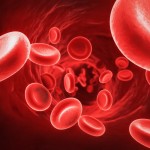
Oral anticoagulant therapy (OAT) is routinely prescribed to those with mechanical heart valves, atrial fibrillation and venous thromboembolism to prevent life threatening events. Heparin, warfarin and new oral anticoagulants (NOACs) are used for OAT.
The aim of this review was to evaluate the bleeding risk of patients continuing or discontinuing OAT while undergoing dental extractions.
Methods
Searches were conducted in the PubMed, Embase, Cochrane library, Web of Science, China Biology Medicine disc (CBM), and China National Knowledge Infrastructure (CNKI) databases. Randomised controlled trials (RCTs) or controlled clinical trials (CCTs) in patients were receiving OAT and required dental extractions were considered. Two reviewers independently selected studies for inclusion. The Cochrane risk of bias tool was used to assess study quality. Bleeding outcomes of the included studies were combined, and a meta-analysis was performed.
Results
- 6 studies (4 RCTs, 2 CCTs) involving a total of 591 patients were included.
- Four of the studies used warfarin as the anticoagulant drug, one used a vita- min K inhibitor and one had not report the anticoagulant.
- 1 study was considered to be at low risk of bias, 5 at high risk.
- Follow up ranged from 1-7 days.
- In the OAT continued group incidence of postoperative bleeding was 10.8 % (34/314) compared with 8.30 % (23/ 277) in the OAT discontinued group.
- Fixed-effects meta-analysis found no significant difference in bleeding risk between the OAT continued group and OAT discontinued group risk ratio (RR) = 1.31 (95%CI; 0.79 to 2.14 , P = 0.29).
Conclusions
The authors concluded:-
our meta-analysis revealed that patients continuing oral anti- coagulant therapy do not increase the risk of bleeding after dental extractions compared to patients who discontinue oral anticoagulant therapy. However, with the limited number of included studies and the risk of bias, well-designed RCTs should be included with a larger sample size as well as specific inclusion and exclusion criteria. Moreover, it would be better if the bleeding outcomes had a reporting standard.
Comments
The authors of this review have followed sound methodology and only identified a small number of relatively small clinical trials assessing this topic. The majority of the included studies were considered to be at high risk of bias. However, all of the included studies found that it was not necessary to discontinue OAT. These findings support evidence based guidance that has been in place for some time that, patients requiring dental surgical procedures in primary care and who have an International Normalised Ratio (INR) below 4.0 should continue warfarin therapy without dose adjustment (Randal 2007) . However the increasing used of NOACs (eg.pixaban, dabigatran and rivaroxaban) and antiplatelet drugs such (eg. prasugrel and ticagrelor) which are not included in this review is raising new questions. NICE approved guidance regarding for the dental management of dental patients taking anticoagulants or antiplatelet drugs was published last year by the Scottish Dental Clinical Effectiveness Programme (SDCEP).
Links
Primary paper
Yang S, Shi Q, Liu J, Li J, Xu J. Should oral anticoagulant therapy be continued during dental extraction? A meta-analysis. BMC Oral Health. 2016 Aug 26;16(1):81. PubMed PMID: 27566540.
Other references
Randall C. Surgical Management of the Primary Care Dental Patient on Warfarin. North West Medicines Information Centre; 2007.
SDCEP Guideline – Management of Dental Patients Taking Anticoagulants or Antiplatelet Drugs – Scottish Dental Clinical Effectiveness Programme

Anticoagulant therapy & dental extractions https://t.co/QDVT7eFq1e
Continuing anticoagulant did not increase bleeding risk after dental extractions https://t.co/QDVT7eFq1e
Continuing warfarin did not increase bleeding risk after dental extractions https://t.co/QDVT7eFq1e
Bleeding risk after dental extractions not increased if warfarin continued https://t.co/QDVT7eFq1e
Don’t miss- Anticoagulant therapy and dental extractions https://t.co/QDVT7eFq1e
Anticoagulant therapy and dental extractions https://t.co/l4LoOzKJqg via @sharethis
Undergoing therapy to prevent blood clots is important for tooth extractions. Otherwise, if the blood clots too strongly, it can cause infection. Ask your dentist or oral surgeon for advice as to what you should do if you’re having an extraction.
[…] Anticoagulant therapy and dental extractions […]
[…] Anticoagulant therapy and dental extractions […]